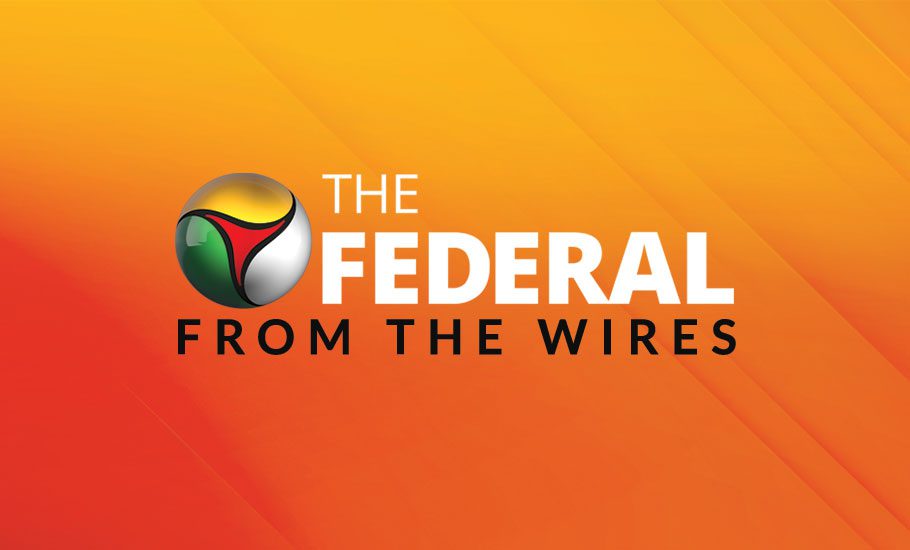
G20 for expeditious resolution of debt vulnerabilities faced by low-income nations

G20 grouping on Saturday pressed for expeditious resolution of the debt vulnerabilities being faced by low and middle-income countries, including Sri Lanka.
The meeting of the G20 Finance Ministers and Central Bank Governors (FMCBG) agreed to strengthen multilateral coordination by official bilateral and private creditors to address the deteriorating debt situation and facilitate coordinated debt treatment for debt-distressed countries.
“We are looking at more efficient and quick resolution. The sheer fact that countries had to wait for years like for instance Zambia had waited for more than a year-and-a-half and there have been countries that went back on the request because they waited for two years. “First of all, the process itself is consuming time, by this time, the distress aggravates…for instance Sri Lanka is waiting for a resolution but in the meanwhile because of delays, they are feeling the stress even more,” Finance Minister Nirmala Sitharaman said.
“So it is more from the point of view of getting creditors to table…both sovereign and private creditors to the table and having all of them agree to a certain formulation in which there needs to be greater efficiency and also coordination among all creditor countries. And sometimes even non-sovereign private funders will have to be joining in this table. “That is why when the IMF and World Bank held the roundtable at the deputies level on February 17th…all of them participated- Exim Banks, Central Bank also Private creditors were all brought to the round table,” she said. That is one of the critical aspects of debt resolution for countries which are so stressed, she said after the conclusion of the first FMCBG under Indias presidency.
“So if we could arrive after so much negotiation at a common position for a language on dealing with debt, I think the G20 is now standing up to meet the challenges of debt stress which many countries are facing,” Sitharaman added.
In December last year, World Bank President David Malpass said the worlds poorest countries owed USD 62 billion in annual debt service, a 35 per cent growth over USD 46 billion in 2021, triggering a higher risk of defaults.
Malpass also said low-income countries are at high risk of debt distress or are already in it and debt crises are also spreading to middle-income countries.
Under the G20 Presidency, India has been pressing for ways to tackle the aggravated debt vulnerabilities facing developing nations mainly on account of the continuing geopolitical tensions and the pandemic. It is feared that if left unaddressed, the mounting debt vulnerabilities of developing nations could trigger global recession and push millions to extreme poverty. “We welcome the conclusion of debt treatment for Chad and call for a swift conclusion of the work on debt treatment for Zambia and Ethiopia. We also look forward to the rapid formation of the official creditor committee for Ghana to work on the requested debt treatment. Further, we look forward to a swift resolution to Sri Lankas debt situation,” Sitharaman said.
Speaking on the issue, Economic Affairs Secretary Ajay Seth said, there is urgency to address vulnerabilities of low and middle-income countries… further, each one said that we have to step up implementation of Common Framework, which was done in November 2020…all agencies have to work…officials, bilateral and private creditors have to work towards finding an early solution. With regard to the strengthening of Multilateral Development Banks (MDBs), Sitharaman said, “I am very grateful that Indias presidency has received strong support on all our key priorities. India particularly got support for our proposal to bring in an expert panel for providing a narrative for an updated vision of the MDBs and that can make them capable of meeting cross border challenges.” The expert group has been mandated to submit a report in three months so that in the July meeting, we will be able to take up the discussions and any follow up that is required, she said.
Talking about the formation of group, Sitharaman said, former Treasury Secretary Larry H Summers would head the panel and former bureaucrat N K Singh would be co-chair.
Talking about other issues, she said, G20 expressed commitment to advancing financial inclusion and ensuring that no one is left behind.
While significant progress has been made in recent years, nations agreed that accelerated efforts are needed to address the remaining challenges and achieve the three-fold objective of access, usage and quality of financial services for individuals and micro, small and medium-sized businesses, particularly the vulnerable and underserved, she said.
“We welcome the productive discussions on Digital Public Infrastructure (DPI), especially in promoting financial inclusion at the G20 High-Level Symposium on DPIs for Innovative, Resilient, Inclusive Growth and Efficient Governance held in February 2023. By our third meeting in 2023, we look forward to the formulation of policy recommendations for rapidly advancing financial inclusion and productivity gains through a well-designed digital financial ecosystem by leveraging DPI,” she said.
(Except for the headline, this story has not been edited by The Federal staff and is auto-published from a syndicated feed.)

